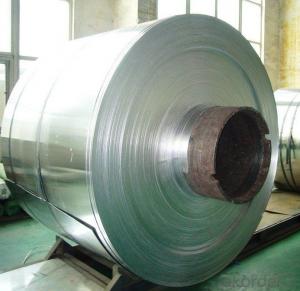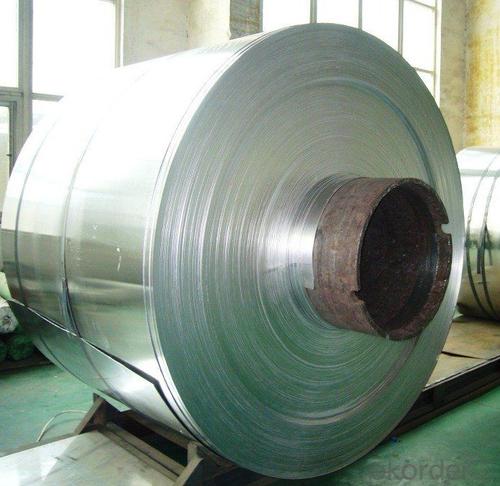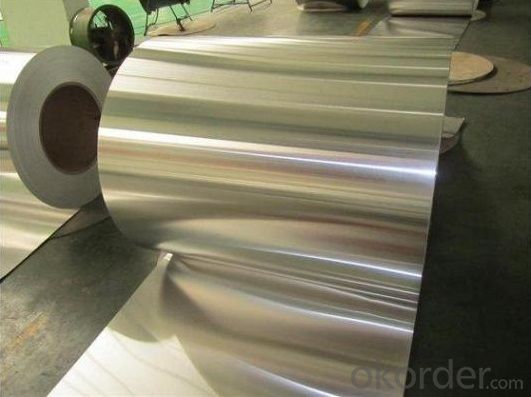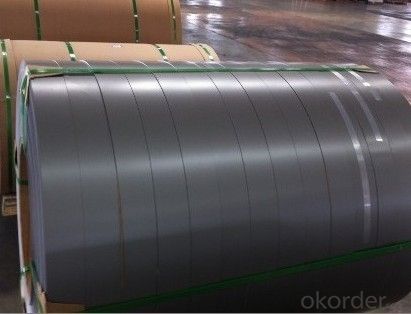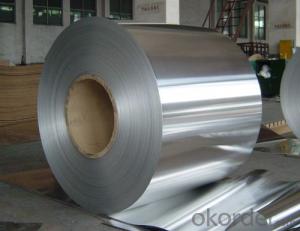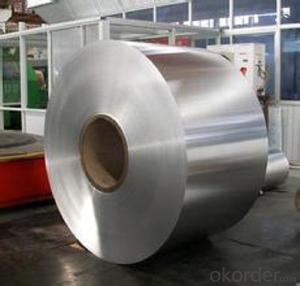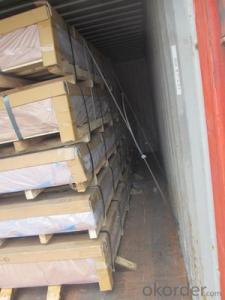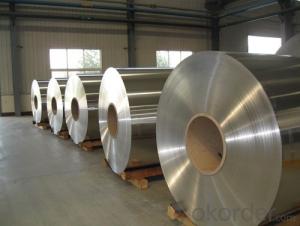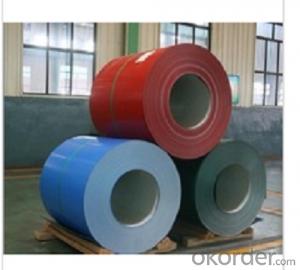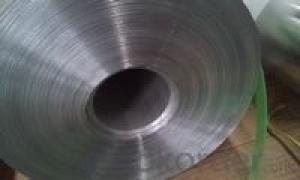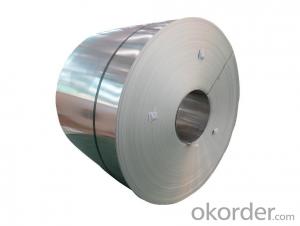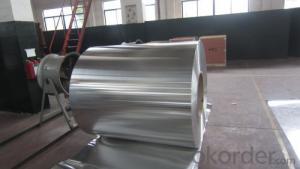Color Coated Aluminum Coil Sheet 1060/1050 for Transformer/Electronic Components
- Loading Port:
- Shanghai
- Payment Terms:
- TT OR LC
- Min Order Qty:
- 2.5
- Supply Capability:
- 5000 m.t./month
OKorder Service Pledge
OKorder Financial Service
You Might Also Like
Specification
1060/1050 Aluminium Coil for Transformer/ Electronic Components
l Product Introduction
It is widely used in manufacturing aluminum thin sheet and aluminum foil. It is suitable for further machining with original standard quality. It is easy to be controlled and be manufactured to according to requirements.
1. Temper: O-H112
2. Thickness: 0.15-10mm
3. Width: 30-2200mm
4. Type: Coil/Roll
5. Surface Treatment: mill finished
6. Application: Decoration, packaging, printing, covering, electronic
7. Standard size: Upon customer's demand
8. Quantity: 18tons(±10%)in one 20 feet container
l Product Description
1060/1050 Aluminium Coil for Transformer/ Electronic Components | ||||||||||||||||
Aluminium Coils, non-alloy and alloy products have many different applications, they are used windly throughout construction, building, decoration, lighting, metal nameplate, aircraft and aerospace structures, etc. | ||||||||||||||||
Specification | ||||||||||||||||
ALLOY | TEMPER | THICKNESS | WIDTH(mm) | LENGTH(mm) | ||||||||||||
1050,1060,1070, | O,F, H12, 114,H18,H22, H24,H26,H32, H34,H36,H111, | 3.0-10.0 | 1000--1500mm | in Coil | ||||||||||||
chemical composition | ||||||||||||||||
Alloy | Si | Fe | Cu | Mn | Mg | Cr | Ni | Zn | Ca | V | Ti | Other | Min.Al | |||
1050 | 0.25 | 0.40 | 0.05 | 0.05 | 0.05 | - | - | 0.05 | - | 0.05 | 0.03 | 0.03 | 99.50 | |||
1060 | 0.25 | 0.35 | 0.05 | 0.03 | 0.03 | - | - | 0.05 | - | 0.05 | 0.03 | 0.03 | 99.60 | |||
1070 | 0.20 | 0.25 | 0.04 | 0.03 | 0.03 | - | - | 0.04 | - | 0.05 | 0.03 | 0.03 | 99.70 | |||
1100 | 0.95 | 0.05-0.2 | 0.05 | - | - | - | 0.10 | - | - | - | 0.05 | 99.00 | ||||
3003 | 0.60 | 0.70 | 0.5-0.2 | 1.0-1.5 | - | - | - | 0.10 | - | - | - | 0.15 | 96.95-96.75 | |||
3004 | 0.30 | 0.70 | 0.25 | 1.0-1.5 | 0.8-1.3 | - | - | 0.25 | - | - | - | 0.15 | 96.55-95.55Packaging detail: Standard seaworthy exporting carton, Wooden | |||
l Packaging & Delivery
Packaging detail: pallets, waterproof paper and plastic coverage or as customer's requirements
Delivery detail: within 30 days after we get your 30% deposit or L/C
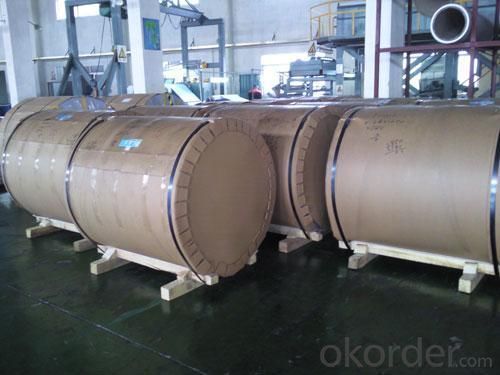
l Company Profile
CNBM International Corporation, China National Building Materials (Group) Corporation, is one of the largest companies in China building material & equipment industry, with 42,800 employees and sales in 2005 of US Dollar 4.395 billion. In 2006, China National Building Material Company Limited was listed on Hong Kong Stock Market with the stock code as 3323. |
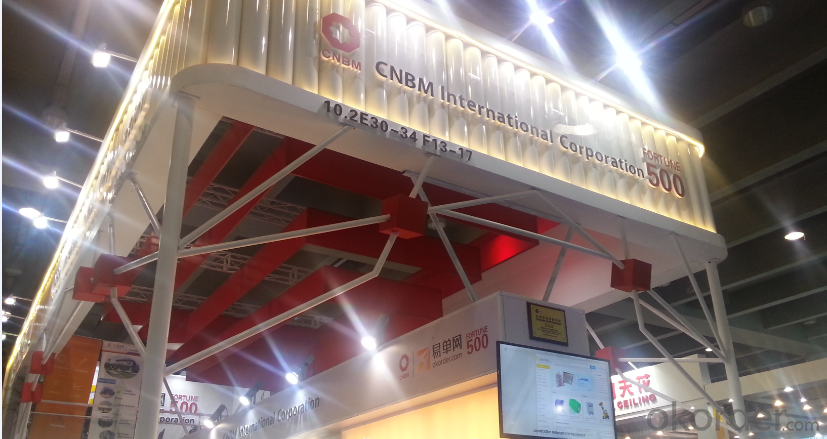
l Product Images
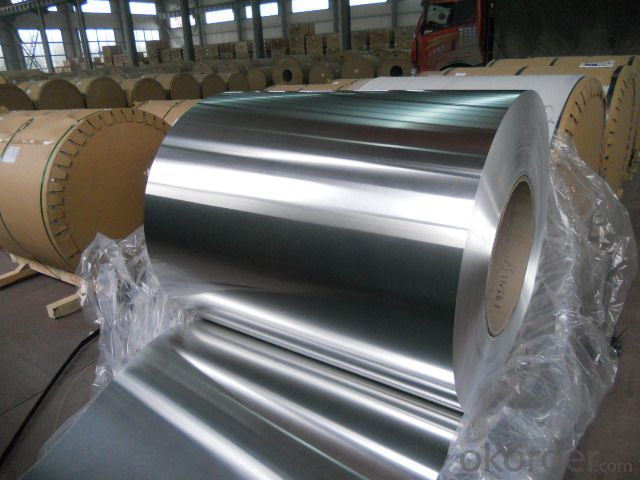
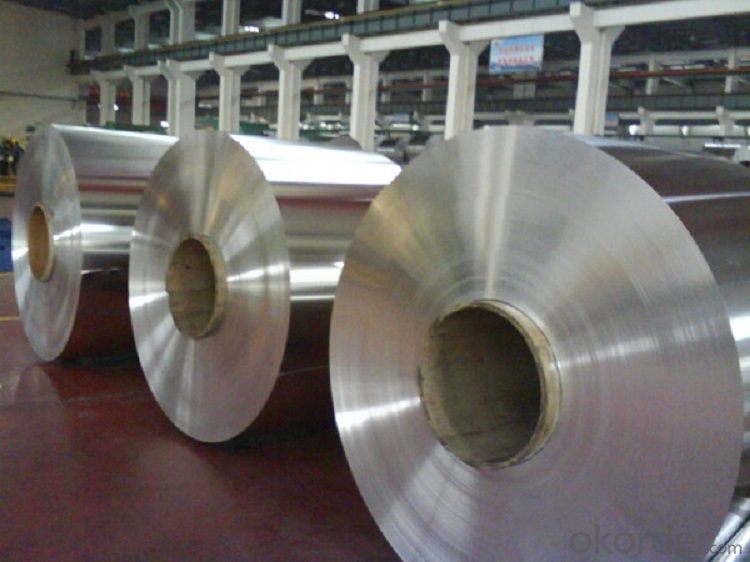
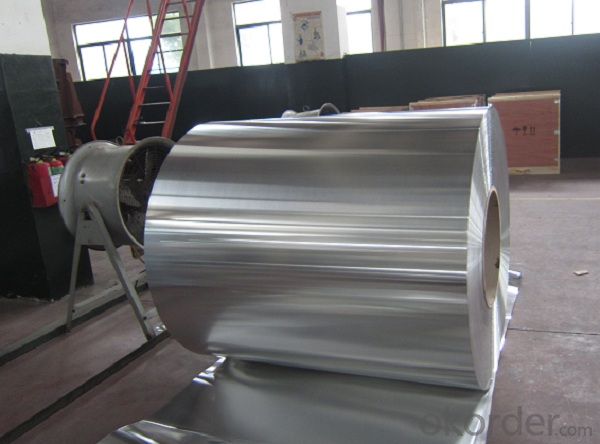
l Certificates
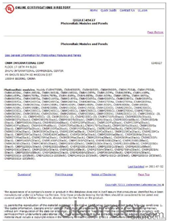
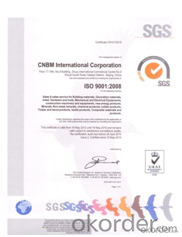
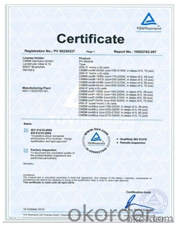
l FAQ
Q: Do you provide free samples?
A: Yes, free samples will be sent to you on freight at destination.
Q: Can I get your latest products catalogue?
A: Yes, it will be sent to you in no time.
Q: What is the MOQ?
A: 2.5 tons
Q: What are your payment terms?
A: We accept L/C, T/T
- Q: What are the potential environmental impacts of aluminum coil production?
- There are several categories in which the potential environmental impacts of aluminum coil production can be classified. Firstly, the extraction of aluminum from bauxite ore requires significant amounts of energy and can contribute to the emission of greenhouse gases. Additionally, if not managed correctly, the use of toxic chemicals in the process can contaminate nearby water sources and soil. Moreover, the manufacturing of aluminum coils involves various stages, such as smelting, rolling, and annealing, each of which has its own environmental implications. For instance, smelting releases air pollutants like sulfur dioxide, nitrogen oxides, and particulate matter, resulting in air pollution and potential respiratory issues for nearby communities. Furthermore, the rolling process consumes a substantial amount of electricity, which may be derived from fossil fuel sources, leading to additional greenhouse gas emissions. Improper management of water usage in cooling and cleaning processes can also strain local water resources. Transportation is another factor to consider. Aluminum coils are often transported over long distances, contributing to carbon emissions from the burning of fossil fuels in trucks or ships. Lastly, the disposal of waste generated during the production process, such as scrap metal or chemicals, requires careful management to prevent pollution of landfills or nearby ecosystems. To mitigate these potential environmental impacts, companies can implement various strategies. These strategies include investing in more energy-efficient technologies, promoting recycling and the principles of a circular economy to reduce the need for primary aluminum extraction, adopting cleaner production techniques, and ensuring proper waste management and pollution control measures are in place.
- Q: I want to paint my cars rims and grill metallic pink. But supposedly paint doesn't stick well to aluminum. What can I do to make it stick better and not chip?
- The best way is to have the pieces powder coated. Its a little expensive but the color and luster are outstanding and will last forever.
- Q: Aluminum is a transition metal, woudn't the stock naming system apply to this formula?
- Aluminium has only one oxidation state i.e +3. Hence it does not matter whether we call it aluminium (iii) oxide or simply aluminium oxide. However copmare iron oxide. Here it could be FeO or Fe2O3 so we have to distinguish by indicating Iron (II) Oxide for FeO and Iron (III) oxide for Fe2O3.
- Q: Can aluminum coils be used in the production of window frames?
- Yes, aluminum coils can be used in the production of window frames. Aluminum is a lightweight and durable material that is commonly used in the construction industry for its corrosion resistance and strength. By using aluminum coils, manufacturers can efficiently produce window frames that are long-lasting, energy-efficient, and aesthetically pleasing.
- Q: Are there any restrictions on the coil thickness of aluminum coils?
- Yes, there are certain restrictions on the coil thickness of aluminum coils. The thickness of aluminum coils may vary depending on the specific application and manufacturing process. However, it is generally limited by practical constraints such as the equipment capabilities, handling and transportation considerations, and the desired properties of the final product.
- Q: Can aluminum coils be used for outdoor applications?
- Indeed, outdoor applications can utilize aluminum coils. Aluminum, as a material, possesses outstanding versatility and durability, enabling it to endure diverse weather conditions and temperatures. Its resistance to corrosion renders it suitable for outdoor environments that encounter moisture and humidity. Moreover, aluminum coils boast a lightweight characteristic, facilitating their transportation and installation within outdoor settings. Consequently, they find frequent usage in outdoor applications encompassing roofing, siding, gutters, and HVAC systems. Taken together, the strength, corrosion resistance, and longevity of aluminum coils establish them as a dependable option for outdoor applications.
- Q: How do aluminum coils contribute to LEED certification requirements?
- Aluminum coils can contribute to LEED (Leadership in Energy and Environmental Design) certification requirements in several ways. First, aluminum is a highly sustainable material as it is 100% recyclable without any loss of quality. This means that using aluminum coils in construction projects can contribute to LEED credits for materials and resources, specifically in the category of recycled content. Additionally, aluminum coils are known for their energy efficiency properties. Aluminum is a lightweight material, which means less energy is required for transportation and installation compared to heavier alternatives. Furthermore, aluminum coils have excellent thermal conductivity, allowing for efficient heat transfer and reducing the energy consumption required for heating and cooling systems. These energy-saving benefits can contribute to LEED credits in the categories of energy and atmosphere. Moreover, aluminum coils have a long lifespan and require minimal maintenance. This durability reduces the need for frequent replacements and decreases waste generation. LEED recognizes the use of durable materials that promote longevity and reduce the environmental impact caused by constant replacements. Therefore, incorporating aluminum coils into a construction project can help earn LEED credits for sustainable sites and materials and resources. In conclusion, aluminum coils contribute to LEED certification requirements by offering high levels of recyclability, energy efficiency, and durability. Utilizing aluminum coils in construction projects can help achieve LEED credits in various categories, ultimately promoting sustainable and environmentally-friendly building practices.
- Q: What is the typical thermal expansion coefficient for aluminum coils?
- The aluminum coils usually have a thermal expansion coefficient of approximately 23.1 x 10^-6 per degree Celsius (or 23.1 x 10^-6/°C). This coefficient signifies the alteration in length of an aluminum coil with each degree Celsius rise in temperature. It is worth mentioning that this figure might slightly differ based on the particular alloy and composition of the aluminum coil.
- Q: Are aluminum coils resistant to saltwater corrosion?
- Yes, aluminum coils are generally resistant to saltwater corrosion. Aluminum is known for its excellent corrosion resistance, especially in marine environments where saltwater exposure is common. The naturally forming oxide layer on the surface of aluminum provides a protective barrier against saltwater corrosion. This oxide layer acts as a shield, preventing direct contact between the aluminum and the corrosive saltwater. Additionally, aluminum coils can be further protected through various coating methods, such as anodizing or painting, which enhance their resistance to saltwater corrosion even further. However, it is important to note that prolonged or continuous exposure to saltwater can gradually degrade the protective oxide layer and may eventually lead to corrosion, although this process is typically slow. Regular maintenance and proper care can help extend the lifespan and performance of aluminum coils in saltwater environments.
- Q: What is the difference between aluminum plate and aluminum coil?
- A sheet is flat, one by one for storage, one for coil material, one roll for storage, but aluminum coil can be leveled by machine, that is aluminum plate.
Send your message to us
Color Coated Aluminum Coil Sheet 1060/1050 for Transformer/Electronic Components
- Loading Port:
- Shanghai
- Payment Terms:
- TT OR LC
- Min Order Qty:
- 2.5
- Supply Capability:
- 5000 m.t./month
OKorder Service Pledge
OKorder Financial Service
Similar products
Hot products
Hot Searches
Related keywords
